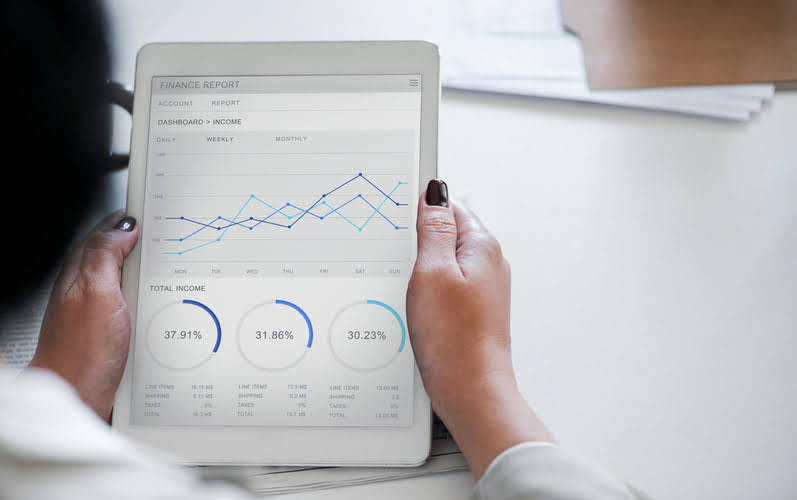
You also have the flexibility to work with remote bookkeepers or accounting firms, gaining expert support without the overhead. Many accounting practices don’t know if it’s the right time to invest in accounting technology, but we’ll give you a few hints. If you notice one (or more) of these signals, rest assured it is time to switch to a more advanced technology. That’s because EPS enables automatic reconciliation of payments, reducing manual effort in matching payments with invoices. Accounting professionals must acquire new skills, embrace innovation, and adjust to technological progress to bookkeeping technology maintain relevance in the digital age.
Emergence of Computerized Accounting Systems
With powerful invoice OCR, you can automatically extract invoice data from PDFs and streamline your invoice processing. Its receipt OCR feature lets you digitize and categorize transactions from physical receipts in seconds, giving you cleaner records and more accurate expense tracking. It’s especially helpful if you’re a small business owner who can’t justify the cost of a full-time accountant.

Financial
By embracing these innovations, accounting professionals can get used to evolving market demands and drive business growth in the digital age. Increased Efficiency and Accuracy – Accounting automation reduces processing time for routine tasks, minimizes errors in financial reporting, and improves data accuracy across financial operations. AI-powered accounting automation utilizes artificial intelligence technologies to streamline and optimize tasks such as data entry, reconciliations, and report generation. By analyzing large datasets quickly and accurately, AI algorithms can categorize expenses, flag unusual transactions for review, and predict cash flow trends. No-code platforms in accounting empower organizations to automate finance tasks without extensive programming knowledge. Also, these platforms streamline processes like accounts reconciliation, financial statement generation, and data analysis.
Modern Accounting and the Role of Technology in Accounting
- This shift allows accountants to focus more on strategic analysis and advisory roles rather than merely transactional tasks.
- This visibility helps identify bottlenecks early so you can allocate additional resources where needed.
- With technology managing routine work, they can now provide valuable insights on business strategy, financial planning, and risk management.
- Instead of spending hours on repetitive tasks, you’ll gain back valuable time and ensure greater accuracy across your records.
- Entries were made chronologically, with debits and credits meticulously recorded to maintain the balance of accounts.
Sustainability reporting and a focus on advisory services are also integral to contemporary accounting. Data analytics and business intelligenceData analysis tools empower accounting teams to interpret financial data, offering valuable insights for forecasting and strategic decision-making. These tools, encompassing software and statistical techniques, enable the identification of patterns within complex datasets through analytics. Financial professionals, including accountants, can leverage these tools to extract meaningful insights, develop new business strategies, and facilitate data-driven decisions.

This gives it tremendous potential to expand in the profession as a tool to reliably track financial information. Want to know what’s behind these numbers and how you can leverage the right emerging technology at your firm? Here are the top 6 accounting technology trends of 2025 and what it means for forward-thinking firm owners, CPAs, accountants, and bookkeepers looking to streamline production and efficiency. Cloud computing provides accountants with the ability to work remotely and collaboratively, granting access to data and tools in real time, which significantly increases flexibility and scalability of services. They enable multiple users to access and work on the same financial documents simultaneously, regardless of their location. This real-time collaboration increases efficiency and provides a cohesive working environment.


Additionally, providing training and support to the accounting team can help them stay up-to-date with the latest financial regulations and best practices. By optimizing the month-end close process, businesses can improve their financial reporting, reduce costs, and make better-informed decisions. Accounting technology is any digital tool that improves and automates your accounting processes and increases efficiency and accuracy (think cloud computing, machine learning, AI, blockchain, etc.). Accounting technology refers to systems, software, and applications firms use to automate financial processes such as data entry, payroll processing, client onboarding, and reporting. Once arduous, the payroll process now often requires minimal human intervention, thanks to sophisticated software capabilities.

Improved productivity, scalability, and collaboration
- Computerized accounting systems are highly scalable and adaptable to the changing needs of businesses as they grow and evolve.
- Manual bookkeeping procedures had limitations and obstacles, but they remained the bedrock of accounting operations for centuries.
- Generally speaking, the goals of accounting technology are to bring accounting methods up to date, enhance decision-making, and adjust to the ever-changing world of business and finance.
- Blockchain technology enables the automation of auditing processes through smart contracts and decentralized applications (DApps).
- Moreover, reconciling accounts and preparing financial statements could be time-consuming tasks, particularly for businesses with a high volume of transactions.
Robotic Process Automation (RPA) represents the most immediately accessible form of AI for many accounting departments, offering significant efficiency gains without requiring extensive system changes. NLP algorithms can bookkeeping for cleaning business automatically categorise expenses, extract key data points from invoices, and verify compliance with accounting policies without human intervention. This capability dramatically reduces processing time for accounts payable automation and improves accuracy by eliminating manual keying errors. Advanced NLP systems can even flag inconsistencies between documents or identify missing information that might otherwise cause processing delays. The COVID-19 pandemic sped up the shift towards remote work, which is likely to continue in bookkeeping.
- Additionally, accounting teams can analyze historical performance data to create forecasts, facilitating informed decision-making during critical business choices.
- Professionals in the accounting field who can demonstrate proficiency in data analysis, cybersecurity, and artificial intelligence are in high demand due to the rising automation of regular accounting work.
- Establishing clear, documented procedures for every aspect of your month-end close creates consistency and efficiency.
- Imagine you could travel to the future to access valuable financial insights about your company.
- Want to know what’s behind these numbers and how you can leverage the right emerging technology at your firm?
- This level of integration is particularly beneficial for small businesses and e-commerce companies that rely on streamlined workflows.
Digital Bookkeeping: Ultimate Guide in 2025
By leveraging a complete cloud-based solution, they’ve positioned their firms to serve businesses that value efficiency and digital workflows. The theoretical potential of AI becomes tangible when examining its specific applications in accounting workflows. From data entry to complex compliance assessments, AI technologies are reshaping virtually every aspect of the accounting function. These applications deliver immediate value retained earnings balance sheet while laying the foundation for more advanced capabilities as the technology continues to evolve. The journey from manual ledgers to AI-powered accounting systems represents one of the most dramatic technological transformations in any profession.